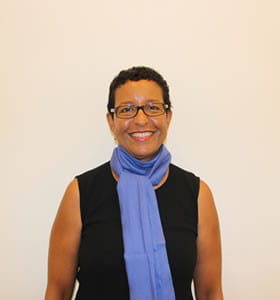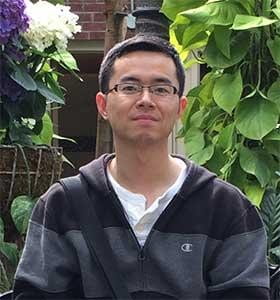Bachelor of Arts (B.A.) Social Science
Faculty Mentors
Degree Requirements
Requirements for Candidates for Honors in the Social Science Major
Requirements for the Social Science Minor
Social scientists study human interactions among individuals, families, communities, and nations. Using a range of analytical, interpretive, and experimental tools from anthropology, economics, sociology, political science, and psychology, social scientists seek to understand conflict and cooperation, epidemics of disease and poverty, social organization and social change, kinship and belonging, human development, systems of exchange, and other enduring questions at the center of our shared humanity.
Students who complete the Social Science major at NYU Shanghai will be prepared to pursue careers and advanced study in fields as diverse as anthropology, business, development, economics, education, environmental studies, law, psychology, political science, public health, public service, sociology, and social policy. The major offers students a unique opportunity to explore broad areas of social science research and thought, while also allowing a concentration in one disciplinary area or a synthetic combination of fields within the major. The Social Science major encourages interdisciplinary inquiry into the complex problems of our contemporary world and the cross-disciplinary exchange that is at the heart of many of the most interesting advances in social science research today.
Social Science majors at NYU Shanghai develop competence in a variety of research tools in two methods courses and complete two interdisciplinary core courses on classic forms of social science analysis and new frontiers in social science research. Social Science majors select two foundational courses in the social science disciplines, and three focus courses chosen in consultation with their faculty mentor to deepen their engagement with a social science discipline (for example, anthropology or political science)* or an interdisciplinary topic of interest (for example, environmental studies, political economy, or global health). China––its peoples and politics––is an important focus for teaching and learning in the major, but the major is purposefully heterogeneous in the geographical, methodological, and analytical scope of its course offerings. Social Science majors complete an independent research project as part of a one-semester senior year capstone project.
*NYU Shanghai students interested in a disciplinary focus in Economics are advised to pursue the Economics major instead of the Social Science major.
**While Calculus is not a requirement in the Social Science major, some Foundational/Methods/Focus courses (but not all) do require Calculus as a prerequisite. Thus, students are encouraged to consider what courses they would like to take for the Social Science major and whether Calculus is a prerequisite.
Student Testimonial

“I’ve been interested in political science since high school, and because NYU Shanghai integrates political science into social science, I decided upon social science. Despite my early decision, I took many science courses in my freshman year to make sure that social science is the best fit.” – Yixin Ren, Class of 2019
“My interests include morality, human behaviour (and what influences it), socioeconomic inequalities, and the intricate relationship between markets and policy. The latter interest is ultimately what has shaped my degree focus in Political Economy. In an age of increasing globalisation, I view a thorough understanding of both politics and economics to be essential in order to successfully navigate the future. Further, the branches within Social Science are all interlinked, and having a basic understanding of each adds valuable perspective to any issue I encounter in my studies. I find social science so compelling to study due to its boundless possibilities; as social scientists we utilise the tools of science to study something inherently non-scientific. The intersubjectivity element within the study of society makes it so vast and enigmatic -yet unlike scholars of the humanities, we are able to develop and test theories and collect real data. Likewise, in contrast to scholars of natural science, we are not confined to sets of immutable universal laws across time and space. As society evolves and varies throughout the world and over time, in terms of moral conception, wealth distribution and population demographics to name but a few aspects, so must the way we approach our work in the social sciences.” – James Bromley, Class of 2018
Faculty Mentors
 |
Professor Almaz Zelleke Associate Professor of Practice in Political Science and Social Science co-Area Leader Email: az22@nyu.edu Room: based in Washington Square Profile |
 |
Professor Todd Meyers Associate Professor of Anthropology and Social Science co-Area Leader Email: tem3@nyu.edu Room: 1201 Profile |
 |
Professor Lixian Cui Assistant Professor of Psychology Email: lc145@nyu.edu Room: 1238 Profile |
 |
Professor Yifei Li Assistant Professor of Environmental Studies Email: yifei.li@nyu.edu Room: 1203 Profile |
 |
Professor Xuan Li Assistant Professor of Psychology Email: xuanli@nyu.edu Room: 1248 Profile |
 |
Professor Eric Hundman Assistant Professor Faculty Fellow of Political Science Email: eric.hundman@nyu.edu Room: 1223 Profile |
 |
Professor Ivan Willis Rasmussen Assistant Professor of Practice in Political Science Email: iwr203@nyu.edu Room: 1317 Profile |
 |
Professor Pekka Santtila Professor of Psychology Email: pekka.santtila@nyu.edu Room: 1237 Profile |
 |
Professor Xiaogang Wu Visiting Professor of Sociology Email: xw29@nyu.edu Room: 1204 Profile |
Degree Requirements – 2017-2018 Bulletin
*=offered in Spring 2018 in Shanghai
Recommended Courses in Spring 2018 for Freshmen:
- Writing as Inquiry
- Foundational Course
- Core Curriculum Class
- English or Chinese
Recommended Courses in Spring 2018 for Sophomores:
- Core Curriculum Class, or Chinese
- Core Curriculum Class
- Social Science Core
- General Elective
Not every course listed is taught every semester, and in any given semester other courses may be offered that fulfill these requirements. Requirements may be met through equivalent courses in the Global Network with prior approval.
| 2 FOUNDATIONAL COURSES (100-200 level) |
These courses provide an introduction to the foundational knowledge and building blocks of analytic methods in a range of social sciences. Typical coursework: A mix of lectures, discussion, assignments, shorter essays, quizzes, and/or exams.
|
| 2 METHODS COURSES (100-300 level) |
These courses equip students with tools to both critically consume and create advanced social scientific research. Methods courses include introductory courses and more advanced courses which may have one or more prerequisites. Additional methods courses are available at the study away sites, NYU New York, and NYU Abu Dhabi. If a methods course carries only 2 credits, a second 2-credit course in a similar field is needed to complete a method course requirement.
|
| 2 Core Courses (200-400 level) (prereq: GPS I) |
| The Social Science Core Courses are interdisciplinary courses that create unexpected connections between the social science disciplines. Classic Problems courses introduce the history and philosophy of the social scientific approach. New Challenges courses introduce new approaches to current challenges in social science research. Students must take one course from each of the two core categories. Social Science core courses are not widely available at the study away sites, NYU New York, or NYU Abu Dhabi; students should plan to take them in Shanghai. Students who complete two Social Science core courses may use additional core courses to complete the focus requirement if appropriate for their approved choice of focus. |
Classic Problems in Social Science
|
New Challenges in Social Science
|
| 3 Focus Courses (200-400 levels) – two must be 300-level or 400-level |
| These courses give students an in-depth look at one specific topic or one field. In consultation with their faculty mentor, students may choose to focus in a particular social science discipline or on one topic from an interdisciplinary perspective. Additional focus courses are widely available at the study away sites, NYU New York, and NYU Abu Dhabi. |
|
| Focus Options: Disciplinary, Interdisciplinary, and Self-Designed Students majoring in Social Science are required to choose a disciplinary or interdisciplinary track, which determines the courses they choose for their 3 Focus requirements and the subject of their senior capstone project. Tracks are noted on student transcripts. Disciplinary tracks available include Anthropology, Political Science, Psychology, and Sociology. (Students who wish to pursue a track in Economics are advised to major in Economics instead.) Interdisciplinary tracks are available in Environmental Studies, Global Health, International Relations, and Political Economy. Students may choose “Self-Designed” as their track, and select their Focus courses and senior capstone project in consultation with a faculty mentor. For these students, “Self-Designed” will appear as the track of record on their transcripts. |
| 1 Capstone Course (400 level) |
| Students complete a capstone seminar course during one semester of their senior year. As part of the capstone seminar students conduct an independent research project in their area of focus using the methods, theories, and data with which they have become familiar over the course of completing the major. The capstone seminar must be completed in Shanghai. |
Requirements for Candidates for Honors in the Social Science Major
Honors degree designation in the Social Science major is awarded to the top students in the major determined by cumulative GPA in Social Science courses and the grades assigned in the Honors Capstone Seminar and Honors Capstone Independent Study. To be a candidate for honors in the Social Science major, students must have a cumulative GPA of 3.75 or above in Social Science courses completed by the second semester of the junior year. Honors candidates complete a 2-credit Honors Capstone Seminar in the first semester of the senior year and a 4-credit Honors Capstone Independent Study under the supervision of a faculty mentor in the second semester of the senior year. Honors candidates must maintain a GPA in Social Science courses of 3.75 or above to remain eligible for honors in the Social Science major.
Social Science Minor: 4 Courses
Students who wish to complete a minor in Social Science must complete one of the Methods courses from the list of approved Social Science Methods courses and three additional courses from the list of approved Social Science courses.
Top
